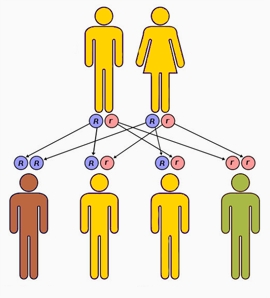 Research Centre of Medical Genetics (RCMG) of the Russian Academy of Medical Sciences (RAMS) and Sequoia Genetics, biotechnological company of Alkor Bio Group, signed partnership agreement in March 2013. Main object of partnership is creation of close scientific and technical collaboration in the field of realization of “Neonatal NGS-based diagnostics” project which was launched in summer 2012.
Research Centre of Medical Genetics (RCMG) of the Russian Academy of Medical Sciences (RAMS) and Sequoia Genetics, biotechnological company of Alkor Bio Group, signed partnership agreement in March 2013. Main object of partnership is creation of close scientific and technical collaboration in the field of realization of “Neonatal NGS-based diagnostics” project which was launched in summer 2012.
“Neonatal NGS-based diagnostics” project is aimed at development of comprehensive diagnostic solution for the detection of severe inherited diseases in newborns and carrier state in couples planning a family. Researchers are creating reliable and high throughput assay for DNA sequence determination which will be able to detect all clinically relevant mutation in genes, associated with cystic fibrosis, phenylketonuria and galactosemia. The final goal of “Neonatal NGS-based diagnostics” project is development of the effective method of molecular-genetic diagnostics of three inherited diseases included in obligatory newborns screening program in Russia.
In the framework of partnership agreement Sequoia Genetics and RCMG are going to conduct joint investigations in development, validation and introduction of NGS-based diagnostic solutions into clinics.
“Since our diagnostic solution is directed to application in clinical practice it requires clinical validation, i.e. clinical trials of the assay. Therefore there should be close interaction between clinicians and researches. RCMG RAMS is the central Russian medical genetics institution; it consolidates scientific and technical resources such as equipment, scientific staff, techniques and samples from patients with diagnosed inherited diseases. In the framework of collaboration Sequoia Genetics will carry out procedural part, i.e. testing of clinical samples provided by RCMG with the new assay. Specialists from Sequoia Genetics and RCMG will jointly interpret results to determine real clinical efficacy of the new assay”, says Alexander Pavlov, Sequoia Genetics CEO.
“Our collaboration first of all consists in providing Sequoia Genetics specialists with clinical samples from patients with diagnosed disease and known genotype. Laboratory of genetic epidemiology will provide biomaterial from patients diagnosed with cystic fibrosis and tested with current molecular-genetic assays. We hope that such sensitive method as DNA sequencing will give us additional information about gene structure associated with severe inherited diseases. This method could be a promising tool for neonatal diagnostics. At present we are using other diagnostic techniques for the mutation detection. Cystic fibrosis studies are being conducted for more than 25 years. The most frequent mutations in different populations are identified, and researchers developed diagnostic assays targeted only these mutations. Russia did the same. But since these assays detect only frequent mutations instead of all possible allele combinations these methods should be complemented with modern sensitive techniques. I also would like to admit that at present cystic fibrosis is being diagnosed mainly based on its clinical manifestation. Genetic testing is used only for diagnosis confirmation. At the same time prenatal diagnostics and family planning require comprehensive studying of pathologic gene resulting in genetic disorder”, says Nika V. Petrova, RCMG leading scientist, PhD.
“About 25% of cystic fibrosis patients in Russia aren’t still diagnosed at present, because these patients are diagnosed only by clinical manifestation. Available genetic tests aren’t able to detect all CFTR mutations. Since 2006 neonatal screening program was launched in Russia in case of five nosologies. The first stage of newborn screening program is testing of dry spots for immunoreactive trypsin (IRT). Newborns with high levels of IRT undergo secondary testing for blood IRT on the fourth week of life. If retest is positive the child is being registered in Cystic fibrosis center. Sweat test is used for the diagnosis confirmation. Sweat test is the “gold standard” in cystic fibrosis diagnostics, but this test could also give ambiguous results. In such cases DNA diagnostics is necessary for the diagnostics. Thus the second stage in CF-diagnostics in Russia is biochemical retest and sweat test, whereas in many countries this stage already includes genetic testing and even sequencing. Certainly, introduction of such up-to-date approach in Russia could expand diagnostic potential especially in mild forms of the disease which caused by “mild mutations”. This is very important when diagnosing youth and adults.
New method which is now under development will be able to detect vast majority of CFTR mutations. This assay will be a powerful tool for physicians treating CF-patients. Our specialists carry out seminars, consultations and conferences in many regions of Russia and know that need in DNA diagnostics in Russia is very high and parents almost always give confirmation for DNA diagnostics. Introduction of new method into obligatory newborns screening program may be difficult but I think that if new assay is effective this will be only a matter of time”, says Elena I. Kondratyeva, RCMG senior scientist, councilor, professor, MD, PhD.
Sequoia Genetics is also a member of Skolkovo Innovation Center and Ingria Business Incubator.